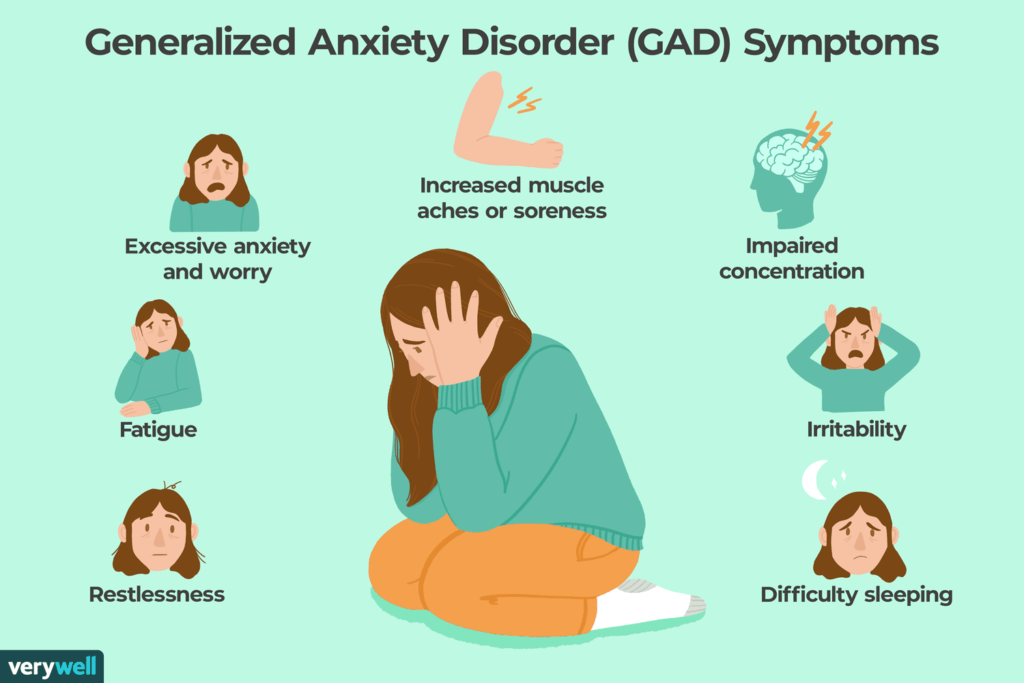
Generalized Anxiety disorder (GAD) is a sort of mental disorder. A person with this disorder feels it difficult to control excessive worry about most things. Anxiety is when a person worries about a particular thing in his or her life. Whereas Depression Induced Disorder is a mood disorder. It causes a person to persistently feel sad as well as lose interest. When a person loses someone or something valuable, it makes them hard to feel happy and peaceful for some time. However, People with Depression Induced Disorder (DID) fall into a deep feeling of sadness. People all over the world seem to mix the 2 disorders as one but in truth, these feelings are poles apart.
Generalized Anxiety disorder causes a person to consistently worry about things such as money, health, family, work, and a lot of other issues. Doctors estimate that a person with GAD finds it difficult to control worry for at least six months on certain matters. Moreover, there are 3 basic symptoms found in almost every GAD patient. A report on Generalized anxiety disorder in the United States of America suggests that almost 6.8 million adults have this disorder. This is almost 3.1 percent of the total population of the United States of America. A person with GAD may even worry about getting through the day.
Some of the common symptoms of Generalized Anxiety disorder include excessive worry about various things in life for at least 6 months. Moreover, the symptoms include problems such as restlessness, being fatigued, difficulty concentrating, irritability, and lastly sleep disturbance. Whereas, depression is a totally opposite disorder. A person with a depression-induced disorder may find it difficult to take interest in a few things along with feeling happy about something. According to doctors and scientific research, depression occurs more in women than in men. Moreover, doctors have connected the severity of this disorder directly to age.
Also See: Encephalitis Lethargica: Neurological Sleeping Syndrome
However, some of the common symptoms of the depression-induced disorder include tiredness, irritability, and anger. Whereas in women it may cause untimed menstruation. In teenagers, it may cause an eating disorder, substance abuse, etc.
Both of these disorders are completely curable. It just needs the patient or a loved one to figure out when the patient needs help. Upon finding out any of the mentioned symptoms, the person should consult a psychiatrist.
